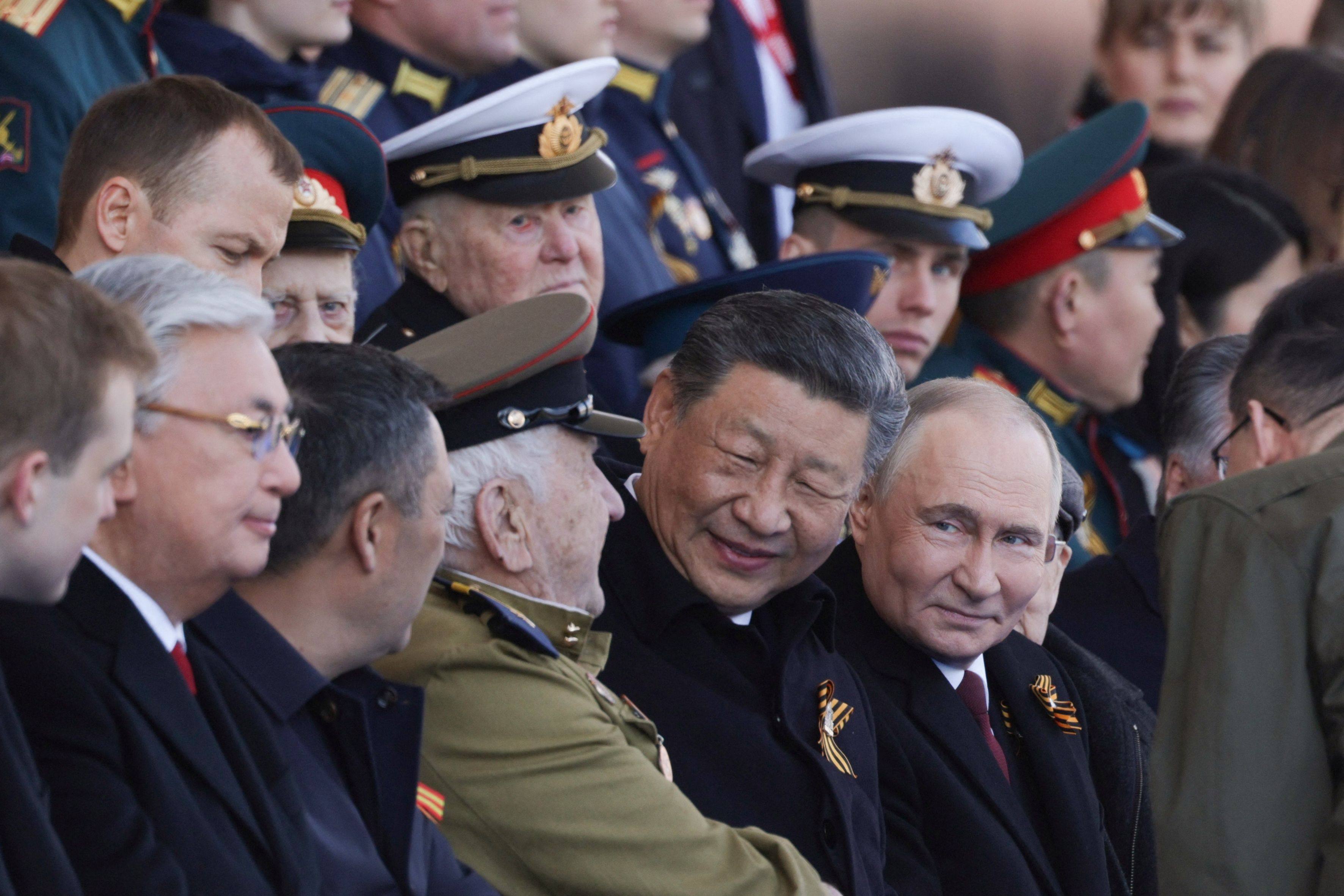Will China and Russia’s WWII narrative resonate with the world?
Beijing and Moscow are crafting an interpretation of world affairs that directly challenges that of their rivals

When Chinese President Xi Jinping travelled to Moscow, many headlines focused on energy talks, bilateral cooperation and handshakes signalling deeper China–Russia ties. However, another type of strategy was unfolding behind the formalities, one rooted not in policy, but in narrative.
In their joint statements and ceremonial remarks, Chinese and Russian officials weren’t simply affirming mutual interests. They were rewriting the language of legitimacy. History, the United Nations and the actions of the United States and Japan were all interpreted through a lens that challenges the foundations of the post-World War II global arena.
At the centre of this narrative strategy lies a deliberate reinterpretation of historical events. The commemoration of the 80th anniversary of the end of World War II was not used as a moment of unity with the West. Instead, the war was framed as a two-front struggle in which China and the Soviet Union bore the primary burden of defeating fascism.
The US, Britain or Poland and the broader Allied coalition, so central to conventional Western narratives of the war, were absent. There was no mention of the Pacific theatre in the form typically understood in Western histories, and no reference to D-Day or the Western Front as decisive moments in the conflict.
Instead, the narrative emphasised the Asian and European fronts with China and the Soviet Union standing together, resisting Japanese militarism and Nazi aggression. The defeat of fascism was not only a shared sacrifice but a shared legacy that now justifies the moral authority of both states.
This is not simply a different interpretation of history; it is a claim to contemporary legitimacy that positions China and Russia as inheritors of the true anti-fascist tradition. The main goal is to reshape the post-1989 world order, one in which international law and small- and medium-sized countries function in the system under US hegemony.
The UN also plays a complex role in this evolving story. Both governments have stated their respect for the UN Charter and the centrality of the UN in maintaining global peace and order. However, this reverence is accompanied by a critique: that the UN has been co-opted by Western powers and distorted from its original purpose.
In its place, China and Russia are promoting a new vision of multilateralism that incorporates organisations like Brics and the Shanghai Cooperation Organisation as legitimate counterweights to Western influence.
The message is clear: the UN remains essential, but only insofar as it serves the principles of state sovereignty, non-intervention and multipolarity. Under this framework, genuine multilateralism must reflect diverse civilisations, not just a Western consensus.
The diplomatic narrative introduced in the joint document on global stability casts the US in a profoundly negative light, particularly in emerging domains like outer space. It accuses the US of transforming space into a military theatre through the so-called Golden Dome initiative.
Earlier this year, the US proposed developing and deploying orbital interception systems, effectively weaponising space. Russia and China see American plans as a violation of the principle that space is a domain for peaceful exploration and scientific cooperation. The framing is not subtle: the US is presented as a destabilising actor, willing to erode global norms in pursuit of unilateral security advantages.
This portrayal fits neatly into a broader theme in Chinese and Russian rhetoric, that of the US as a revisionist power, willing to undermine international law when it no longer serves its interests. In this context, the US-Japan alliance is viewed not as a stabilising regional force but as an extension of the American containment strategy.
From Beijing’s perspective, the alliance is fuelling regional militarisation and increasing the likelihood of confrontation. While US-Japan relations aren’t explicitly mentioned, the joint statement takes a veiled swipe at alliances that advance “extended deterrence” and share dual-use equipment.
What makes this convergence of narratives so significant is not merely its content, but its direction. China and Russia are not just speaking to each other or their domestic audiences; they are talking to the developing world.
In Africa, Southeast Asia, Latin America and parts of the Middle East, this message of sovereignty, anti-imperialism and historical justice – along with an alternative version of the second world war – may resonate with governments and societies that have grievances against Western interventionism.
Regardless, the world is entering an era where multipolarity is not only material but also steeped in discourse. Great powers need not count the strongest armies or economies; those that exercise power through narrative take the initiative in international politics.
Xi’s visit to Moscow evokes the message from George Orwell’s Nineteen Eighty-Four, “Who controls the past, controls the future: who controls the present, controls the past.” China and Russia understand this. The question is whether the rest of the world also reproduces both powers’ version of history.